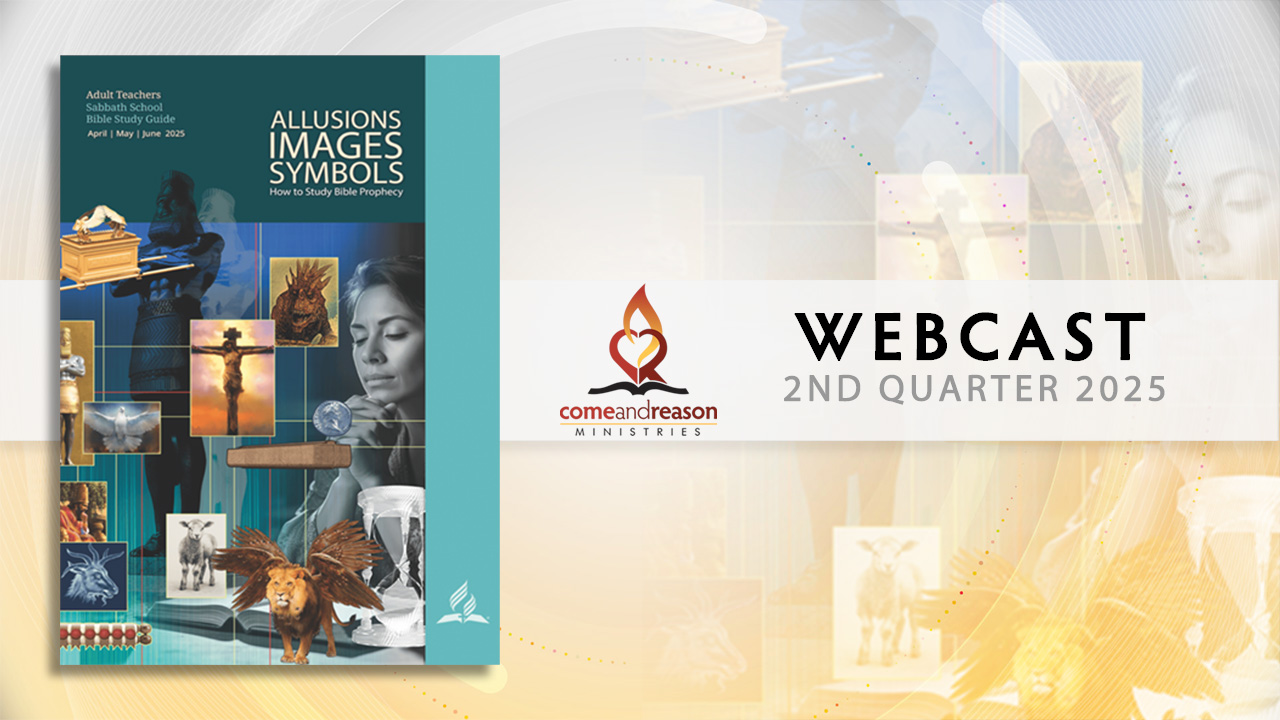The Bible is clear that all humans “have sinned and fall short of the glory of God” (Romans 3:23 NIV84). David explained the reason this is so: Because of Adam’s sin, we are born in sin and conceived in iniquity (Psalm 51:5). This means that we all are born with a terminal condition that we did not choose and that results in destructive symptoms and eventual death if we don’t get the cure. Having this condition is not our fault, and we are not guilty for being born this way.
Imagine that an HIV-infected man and an HIV-infected woman get married and have a child who is born HIV infected; what did the child do wrong? Nothing! The child is not “guilty.” But the child still has a condition that, if not remedied, will cause sickness and death. That is the condition of every human being born since Adam sinned; we are born terminal, not guilty. Thus, the Bible says that we are “dead in trespass and sin” (Ephesians 2:1) and only have life through Jesus (Ephesians 2:5) because Jesus provides us the cure.
But when the HIV-infected child becomes an adult and persistently refuses a free remedy that would put the HIV into remission, what would happen? They would get sicker, have more symptoms, and eventually die from that condition. They would not be executed by the doctor, who provides the remedy.
This is a perfect analogy to our sin problem and the plan of salvation. We are not responsible for being born in sin; we are responsible for refusing the free remedy offered in Jesus.
Back when I was in medical school, there were no treatments for HIV and we had many patients who were dying from Acquired Immune Deficiency Syndrome (AIDS). People with AIDS were all suffering from the same terminal condition—the HIV infection—but they did not all present with the same symptoms. Some had pneumonia, some went blind, others developed various lesions of the skin.
How sad would it have been if the patients with pneumonia criticized those with skin lesions, while those with the lesions criticized the blind, and the blind complained about the pneumonia patients who were constantly coughing? And how much worse would it have been if not only had the patients criticized each other for their varying symptoms but also said, “I may have a fever and cough, but at least I’m not blind” and then refused to seek treatment?
Sadly, the world today is much like this, focusing on someone else’s sin, someone else’s sickness or symptoms, as a means to ignore their own:
- “I may have had four DUIs, but at least I don’t do drugs.”
- “I may buy lottery tickets, but at least I don’t gamble; and I have never gone to Vegas!”
- “I may look at porn on my computer, but at least I have never visited a prostitute.”
But this is the way of sin: denial, distortion, projection, fault finding, blaming, accusation. Jesus dealt with the same thing in His day and said to the religious leaders:
“Why do you look at the speck of sawdust in your brother’s eye and pay no attention to the plank in your own eye? How can you say to your brother, ‘Let me take the speck out of your eye,’ when all the time there is a plank in your own eye? You hypocrite, first take the plank out of your own eye, and then you will see clearly to remove the speck from your brother’s eye” (Matthew 7:3–5 NIV84).
We are born with a terminal condition that we did not choose, yet without treatment (God’s grace working in our hearts), it causes all kinds of symptoms—fear, selfishness, guilt, and shame—which lead us to actions meant to protect self: lying, cheating, and acting in violation of God’s design for life, His law of love. Such actions always damage the sinner, causing greater guilt, fear, and shame, and, if not healed through God’s grace, result in hardening of hearts, warping of minds, and corruption of characters. People become more selfish and less capable of clear thinking.
Because we are all born with this fear condition of selfishness, the me-first instinct, we have all acted in selfish ways (sinned). The normal response when we sin is to experience guilt, fear, and shame. These unpleasant feelings are designed to alert us that something is wrong and motivate us to seek healing. We want to make these feelings go away. The only healthy way to resolve them is through repentance and experiencing God’s grace healing the heart. We are “reborn” with new identities as children of God. “If anyone is in Christ, he is a new creation; the old has gone, the new has come!” (2 Corinthians 5:17 NIV84).
But if people refuse God, refuse to repent, refuse the remedy of Jesus, then they seek to resolve the feelings of guilt, shame, and fear through destructive means, such as: denial, distortion, projection, blame, externalization, various forms of pleasure seeking (drugs, alcohol, gambling, sex, violence, thrill seeking, entertainment, etc.) designed to numb the conscience. For such sinners, truth—which would bring conviction, expose the disease, and bring to light the pathology of a character in need of healing—must be avoided.
“This is the verdict: Light has come into the world, but men loved darkness instead of light because their deeds were evil. Everyone who does evil hates the light, and will not come into the light for fear that his deeds will be exposed” (John 3:19, 20 NIV84).
The wicked cannot tolerate allowing the righteous to live in peace because the lives of the righteous are lights of truth, which expose the lies and destructive practices of the wicked; this causes the wicked to experience more guilt, shame, inadequacy—even if the righteous say nothing. Guilt and shame are inherent in the sin itself, and truth exposes the deficiency of character and brings the guilt, fear, shame into consciousness, so truth must be avoided. Therefore, the wicked always seek to corrupt the righteous—to get the righteous to sin. This not only extinguishes the light of truth that exposes the sin, but it also justifies the sinner by garnering tacit validation through mutual sin-indulging behavior. If the unrepentant cannot seduce the righteous into joining them in their sin, then they seek to silence, censor, devalue, demean, or destroy the righteous—the truth must be opposed.
One form of this self-deception is combining denial of one’s own sin with projecting the wrong onto others and devaluing the righteous person. In this way, the unrepentant will accuse the righteous of being more sinful, hypocritical, or worse off than themselves. A person struggling with addiction denies they have a problem: “So I drink a little. I can stop anytime I want. That DUI was a trap.” They project their guilt and shame onto the righteous and devalue them as being a worse sinner, justifying their continued addiction: “At least I’m not a judgmental hypocrite like them.”
Jesus made the same point in His day:
“Two men went up to the temple to pray, one a Pharisee and the other a tax collector. The Pharisee stood up and prayed about himself: ‘God, I thank you that I am not like other men—robbers, evildoers, adulterers—or even like this tax collector. I fast twice a week and give a tenth of all I get.’ But the tax collector stood at a distance. He would not even look up to heaven, but beat his breast and said, ‘God, have mercy on me, a sinner.’ I tell you that this man, rather than the other, went home justified before God” (Luke 18:9–14 NIV84).
This trap keeps people from genuine repentance, from true healing of heart and mind, as they embrace the lie that as long as they aren’t as bad as that other person, they are okay.
Recently, I contrasted the biblical worldview and the Green worldview. I described how the Bible teaches a future in which God destroys this broken and damaged planet and replaces it with a new Earth free from all sin, disease, and defect—the home for the righteous. In contrast, the Green worldview is a godless belief that envisions a future of overpopulation, exhaustion of the planet’s resources, and death unless we act to stop it. I contrasted how the biblical worldview values people over the planet, but the Green worldview values the planet more than the people and wants to cull the population in order to save the planet. After presenting these concepts, I received the following email:
I … was interested in your comments about the far left at its extreme. … I would also like to know why you haven’t made similar comments regarding the far right, because their agenda is quite similar. The far right is also interested in decreasing the population to have an elite white society. The White-Supremacists, Skinheads, Oath Keepers, Proud Boys, and Ku Klux Klan are all quite vocal about getting rid of Blacks, Hispanics, Asians, and Jews and we have several House Members and Senators that are leaning in that direction. It is also interesting to note that they are perfectly happy destroying the earth as long they can get rich doing it.
Do you see it? The person is basically saying: “My Green desire to cull the population isn’t as bad as their racism—racism is more evil. At least I want to cull all ethnic groups equally.”
This person totally missed the point that I was not contrasting the political left and the political right; instead, I was contrasting the Creator God worldview with the godless evolutionary worldview. They missed the point that from a biblical worldview, it is never about race, because from God’s vantage, there is only one race—the human race—and when we are reconciled to Christ, we are all members of the heavenly family, all children of God, all heirs to the promises, restored to unity and oneness of love under one head, Jesus Christ (Galatians 3:2–29; Ephesians 1:10).
God’s plan of salvation is for every human being equally. Only those who refuse the remedy of Jesus continue to compare themselves with others and find fault in others as a means of avoiding their own guilt, fear, and shame—and this is the root of all racism.
We (the entire human race) are all dying of the same terminal sin-condition and need the same remedy (Jesus). It is a trap to look to others, finding ways to elevate ourselves above them and criticize them as a way of feeling better about ourselves.
The only solution to our terminal sin condition is that provided by God, through Christ, and administered by the Holy Spirit. The truth about God as revealed in the life of Jesus dispels the lies from our minds and wins us back to trust. In trust, we open the heart and receive God’s love, His indwelling presence, so that “it is no longer I live but Christ lives in me” (Galatians 2:20). We experience new hearts and right spirits, love casts out fear, and we are freed from guilt and shame. Being reborn, receiving the free remedy of Jesus, we no longer seek to avoid these toxic emotions through the methods of the world, but instead choose to practice God’s methods of truth, love, and freedom. We present the truth in love and leave others free, for love never compel, it does not coerce, or force its way—love always leaves people free.
So when tempted to elevate yourself above others and criticize them for their sin symptoms—STOP! Instead, fix your eyes on Christ; see the beauty of His character, the truth of His supreme trustworthiness; open your heart in trust to Him; let His love fill you up and cast out all your fear; let Him remove all your guilt, take away all your shame, and give you a new heart—and then go forward as a new creation seeking to administer God’s healing love to others.










 using your credit or debit card (no PayPal account needed, unless you want to set up a monthly, recurring payment).
using your credit or debit card (no PayPal account needed, unless you want to set up a monthly, recurring payment). instead?
instead?